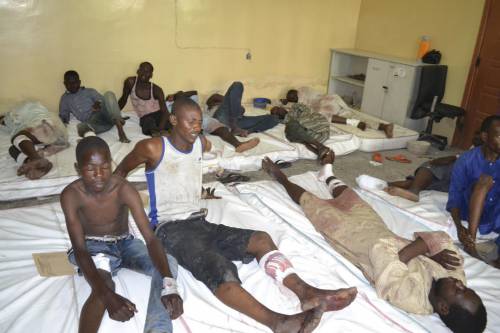
The World Health organisation has reported that over 250 out of about 743 health facilities in the Northeastern state of Borno, Nigeria have been destroyed due to the activities of the insurgent group, Boko Haram.
In the report released on Thursday, December 15, 2016, the organisation said that 35 percent of the 743 health facilities in Borno have been destroyed. Of the remaining, about 29 percent are partially damaged and only 34 percent are intact, but most of them do not have access to uncontaminated water sources.
Officials say these figures come from the first report after WHO and Borno State Ministry of Health set up a system to gather information about the state of health services in the state.
Wondi Alemu, WHO representative in Nigeria, said the organisation’s top priority is to save lives and prevent sickness among the almost six million people who are in need of health assistance. “High insecurity, difficult terrain and lack of health workers, medicines, equipment and basic amenities such as safe water are making access to essential, life-saving health care extremely difficult for people in this conflict-affected area.”
Coming on the backdrop that about 400,000 children are at the risk of famine in northern Nigeria, and the cancellation of the plan to build and refurbish 10,000 primary healthcare centres across the country, it is another dire situation waiting to happen.
The federal government has also expressed its intention to close internally displaced camps in Borno state by May 2017, as opposed to an earlier scheduled date in 2016, yet, as people return to their communities and pick up pieces of their lives, access to primary health services would hamper development efforts and lead to unrest.
Already, most of the infrastructure in the Borno, the state capital of Borno state, Nigeria and its surrounding local governments has been ravaged by the constant terrorist activities of insurgents.
Its’ a recipe for disaster, mixing a deep reservation of security with an absence of healthcare. Many blame corrupt officials in Nigeria’s government and army for the continued militancy.
Boko Haram’s activities since 2009 aimed at weakening the sovereignty of Nigeria has left more than 20,000 people dead and several million displaced setting the stage for the worst humanitarian crisis in West Africa. The terrorist group has been increasingly targeting the civilian population ever since.
Credit: venturesafrica.com